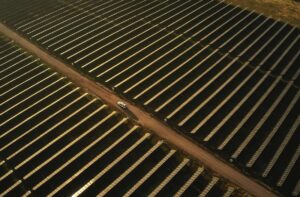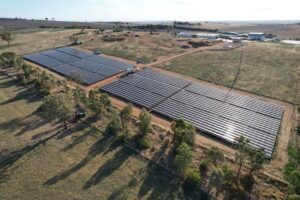Last month, SunWiz experienced first-hand the crippling impacts of a blackout. Following a massive multi-day rain storm that cut off roads in both directions, the power went out right at the moment we were making preparations for high water. In my neck of the woods (the hinterland of Byron Bay), a blackout isn’t such an uncommon occurrence – we lose power twice or thrice per year. We usually light candles, converse with each other, and retire to bed early – only to be woken in the middle of the night by all the lights and appliances switching on when the power resumes. In this case, after 16 hours of candles, conversation, and sleep, we made a rare visit to our next door neighbour, spending the afternoon connecting over a few bottles of red wine.
What made this different was the severity and duration of the power outages. It’s was 70 hours (three days) without electricity, though some were without for five days. When I called to check on the power status, a recorded message informed me that I was one of 18,000 people from Tweed Heads to Bellingen without power, and there were tens of thousands more in south-east Queensland. Apparently the duration of the blackout meant batteries went flat on mobile phone towers, leaving Energex to install portable generators and then run up and down mountains to refuel them.
Losing power makes you realise how much we rely upon it. My first-world list of complaints includes loss of internet, loss of mobile phone coverage (my rural booster went out), loss of Facebook (of greater concern for my neighbour’s teenage children who thought this was the foretold-but-delayed apocalypse). After three days, a refrigerator full of warm food really smells.
But perhaps the greatest impact has been the loss of running water. 9km from the nearest town, we live on rainwater and even though our 37,000L tank is now full (twice over), without electricity to pump the water up to our second storey Queenslander, we were reduced to collecting buckets of water with which to bathe, wash dishes, and flush toilets.
And call me a solar geek but I was also upset about losing $5/day in feed-in tariff payment from my solar power system (is Essential Energy liable for lost revenue?). We have a 3kW system, and our low-energy lifestyle and solar hot water systems means we produce twice as much electricity as we consume. The morning after the storm cleared, I first though the storm had damaged my system, for its solar inverter was showing a fault light. It took me a moment to remember that that the fault light on my solar inverter was not because there was something wrong with my system but something wrong with the grid. You see, in order to protect the lives of linesmen working to clear faults on the grid, typical solar power systems shut down during blackouts, even during the day. So, for all of the energy available on site, I wasn’t able to use it… hence no running water (or Facebook).
A battery backup system can provide power in such cases. But its quite an investment just to avoid the occasional inconvenience of a blackout, particularly if they only last a few hours. Widespread grid interruption events like this are likely to become more common due to climate change. Having already taken a step towards energy independence, I think its time to step towards grid independence. Fortunately, there’s a new suite of products on the market that do more than just provide power during a blackout, they can also power your home entirely at off-peak rates, and ensure your electricity retailer doesn’t buy your excess solar power for a pittance and on-sell it to your neighbour at a markup.
A battery-based low-voltage Grid Feed Inverter typically provides the following functions:
· Provides continuous power when the grid is down.
· PV continues to operate during outages
· Can be used with or without PV,
· PV can be AC Coupled with a Grid inverter or DC Coupled.
· Export excess PV after Self Consumption
· Charge batteries from Grid OFF Peak for use during peak periods.
Some brands are able to be retrofit to existing systems regardless of the inverter, some only work work with the same brand of inverter, and some are all-in-one units that replace your existing inverter. The most common solutions currently available in Australia are:
- Selectronic SPPro: can be retrofit to an existing system, though combining with a Kaco grid-connect inverter enables additional features including enhanced battery utilisation and greater configuration. Can perform grid demand management and export control. About 7000 units already deployed.
- SMA Sunny Backup: available in 8kW, 44kW, and 110kW units, compatible with SMA grid-connect inverters. About 3000 units already deployed.
- Nedap Power Router (distributed by SETEC) – an all-in-one unit (options 3kW, 3.7kW, 5kW) with or without storage that is currently available and looks great.
- Zen Residential Freedom Powebank – about to go into production, provides 14-20kWh of energy storage, allows grid support (network controlled discharging).
- Sol-Ace Sun-Sink and Grid Demand – currently being produced and available in 5 & 10 kWh units, with prices starting from $3000.








